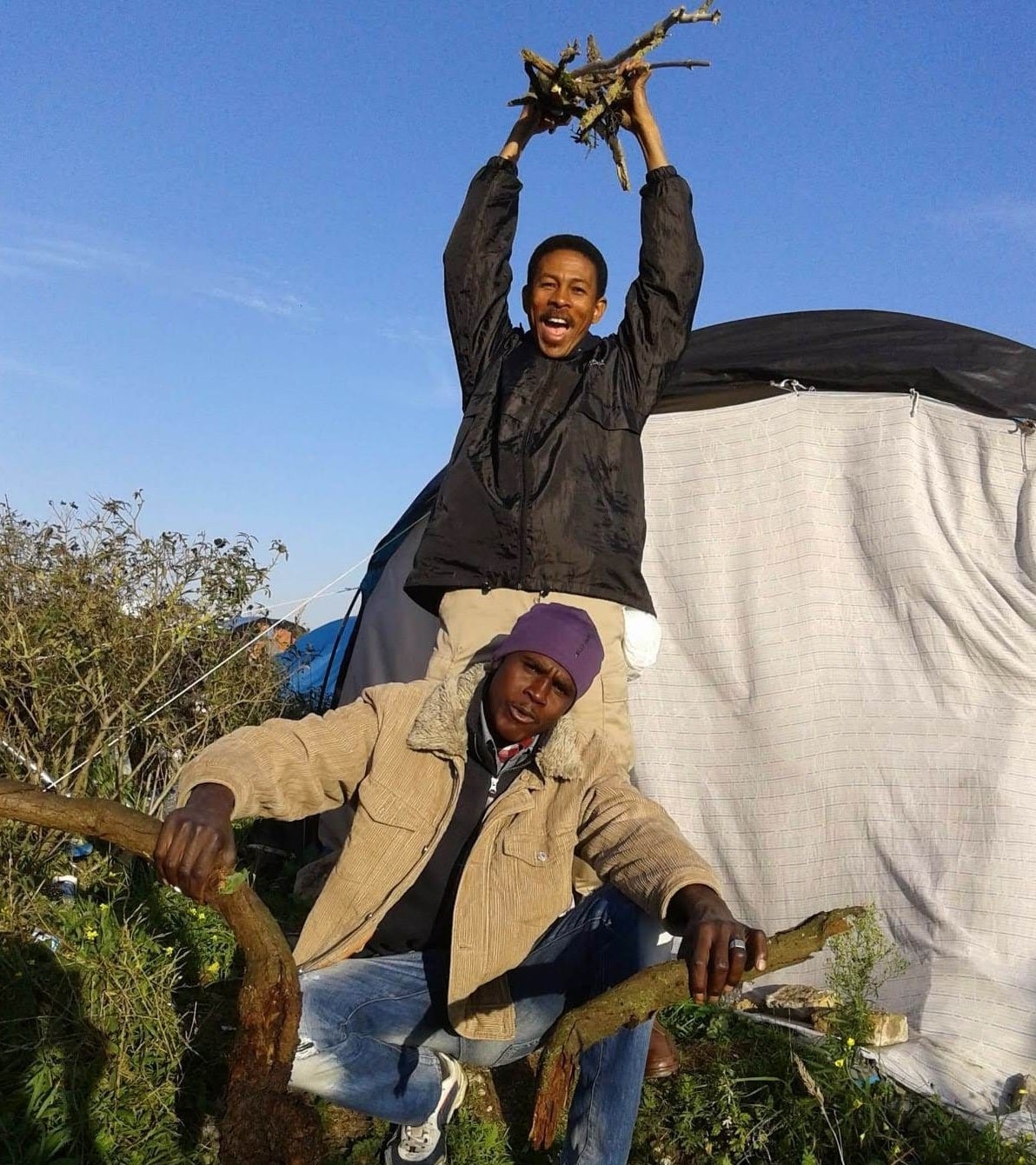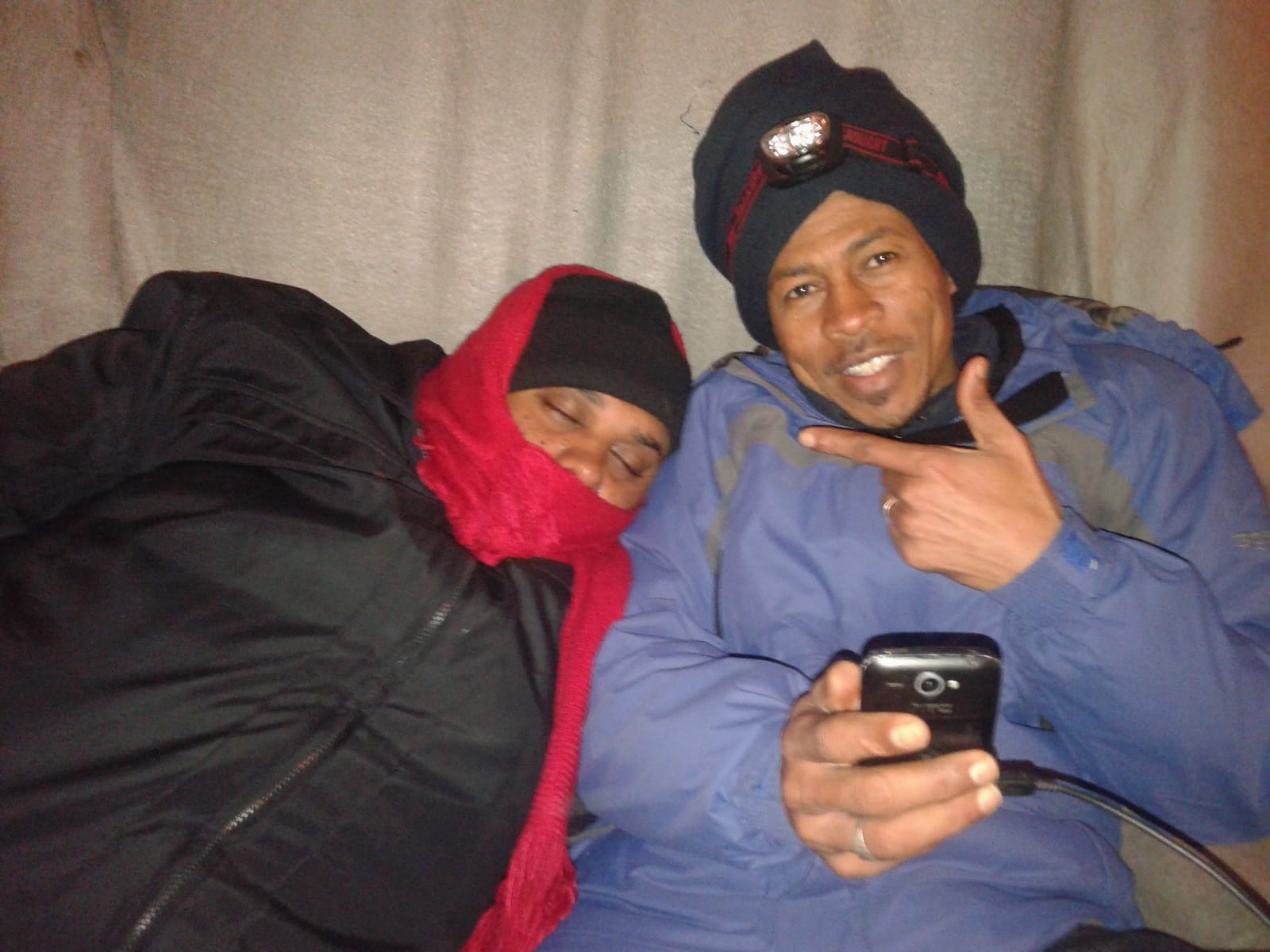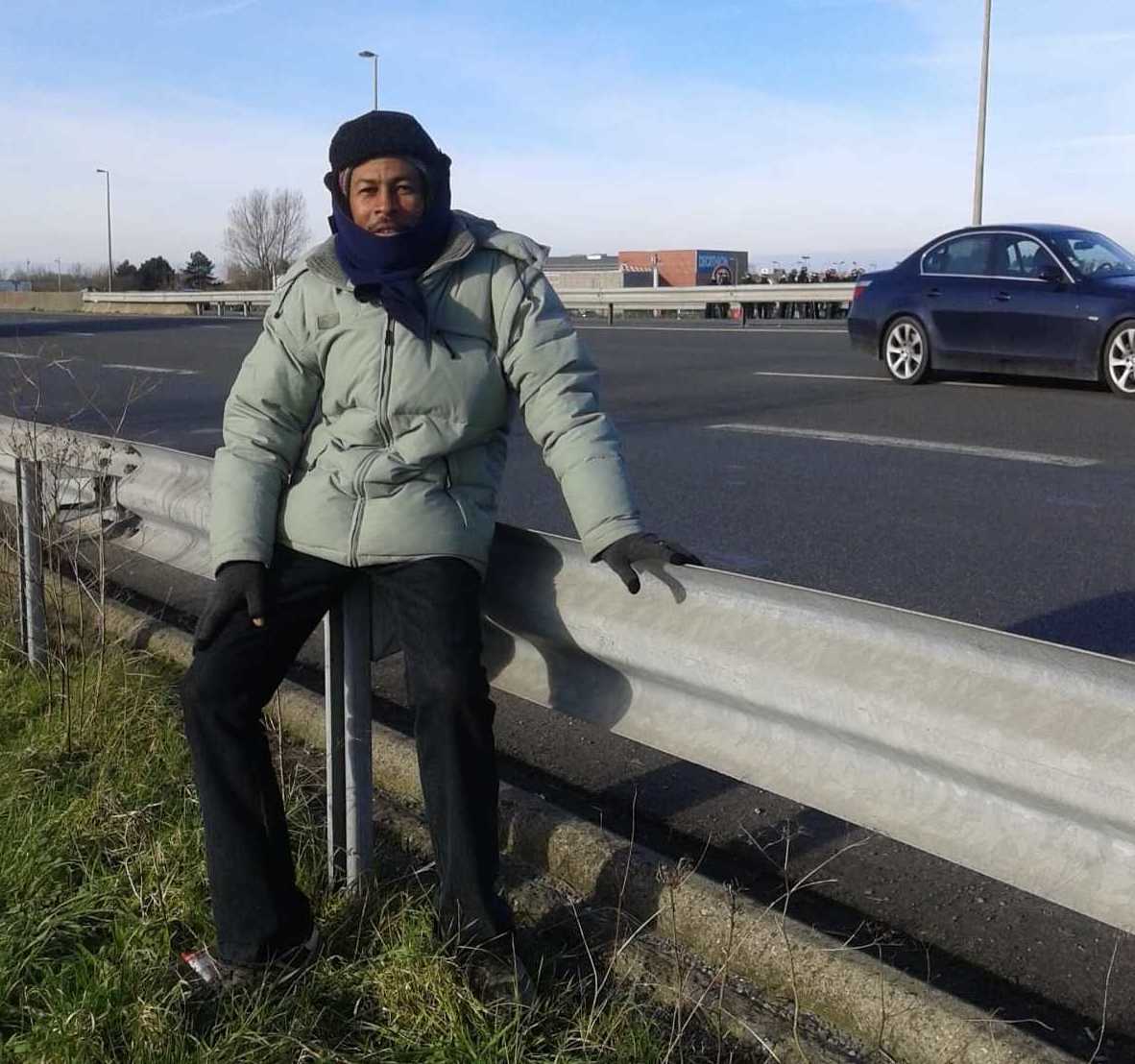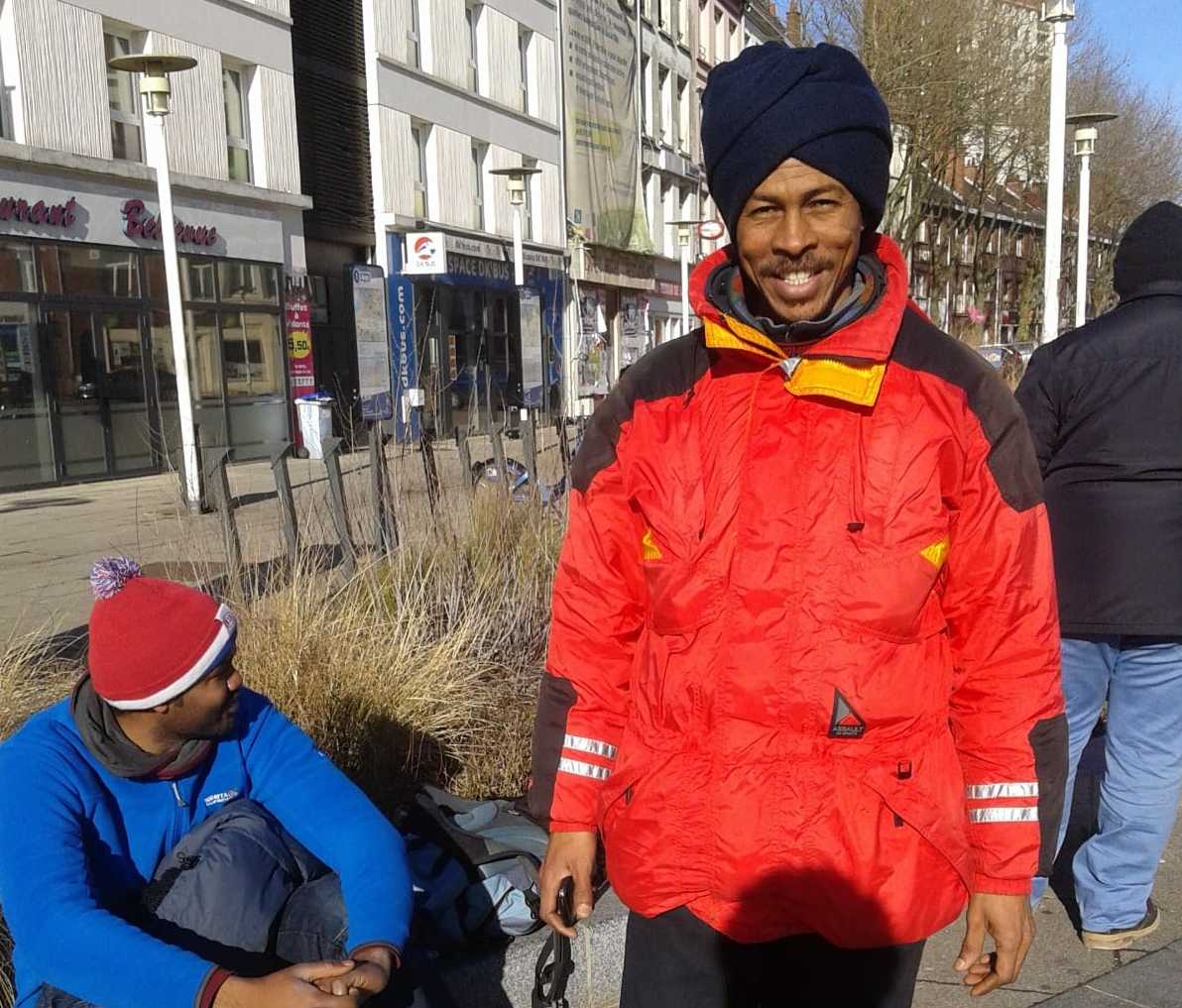Refugee who survived Mediterranean crossing and Calais Jungle left disabled by vicious street attack in London
‘I was very happy when I got leave to remain in this county, but now I have lost everything. I feel like I’m being punished because I’m a refugee. I feel like I am nothing, like I am not human. I do not feel safe here any more’
Your support helps us to tell the story
From reproductive rights to climate change to Big Tech, The Independent is on the ground when the story is developing. Whether it's investigating the financials of Elon Musk's pro-Trump PAC or producing our latest documentary, 'The A Word', which shines a light on the American women fighting for reproductive rights, we know how important it is to parse out the facts from the messaging.
At such a critical moment in US history, we need reporters on the ground. Your donation allows us to keep sending journalists to speak to both sides of the story.
The Independent is trusted by Americans across the entire political spectrum. And unlike many other quality news outlets, we choose not to lock Americans out of our reporting and analysis with paywalls. We believe quality journalism should be available to everyone, paid for by those who can afford it.
Your support makes all the difference.Atif al-Sharif holds out his phone to show a photograph of himself. He is standing in front of a tent holding a bundle of firewood to the blue sky above, alive with expression. The picture was taken in the Calais Jungle just four years ago, but it bears such little resemblance to the man holding it out it might as well be a different person.
The Sudanese national now sits in a small hotel in Ilford. His face is weathered and worn, deep worry lines creased into his forehead. Reliant on crutches, his skinny limbs cast sharp outlines in his clothes. Most strikingly, he has a gaping dent on the right side of his head where part of his skull is missing.
Atif fled from his home country in 2010 after receiving death threats from government forces for his support of the political opposition. After a perilous journey, he reached the UK in 2016 and was granted refugee status. But far from feeling protected, he has since narrowly avoided murder, leaving him severely disabled, and been placed in housing the authorities themselves admit falls woefully short of what he needs.
“When I came to the UK I was looking for just one thing: protection,” Atif says, a dismal tone in his naturally soft voice. “I was very happy when I got leave to remain in this county, but I do not feel safe here any more.”
A construction worker by trade, Atif had been living a happy life in Sudan. He had a wife and two children, with a third on the way. But things turned sour when, due to his support for guerrilla movement Sudan People’s Liberation Army (SPLA), he was arrested. He knew immediately that if he wanted to stay alive, he had to flee.

“They tried to kill me,” he says. “They beat me, too much. They said, ‘We need information about this opposition, give it to us’. They were trying to use me as a spy. A man helped me to escape in a lorry from Khartoum to Kassala, and then in a car from Kassala to Egypt.”
Atif spent five years in Egypt, where he found work doing night shifts as a supervisor in a factory. But fearful that the Egyptian authorities would send him back to Sudan, he decided to take up an opportunity to travel by boat to Europe – despite knowing it carried with it a risk of death.
“I knew people had died crossing, but I said ‘I don’t have any choice’,” he says. “Most people paid money but I didn’t, because I didn’t have any. We started our journey to Italy. Three people in our boat died in the water.”
Atif made it to Italy, but decided to continue northwards to Britain, where he would be able to speak the language. After two weeks he reached Calais, where he spent 11 months living in the so-called Jungle.

“Some things were good, other things were bad,” Atif says when describing life in the camp, explaining how migrants were helped by volunteers who brought food and clothes, but always under the shadow of the feared police.
On 26 May 2016, after almost a year living in the shanty town, Atif came across a lorry with its doors open on the side of a road. Several migrants were already in the vehicle, and Atif joined them. Ten hours later, he found himself in the UK, where he was taken to a police station and later interviewed by the Home Office. After 18 months of being moved between numerous asylum houses, Atif was granted refugee status.
“I was very, very happy,” Atif smiles at the memory. “I wanted to start a good life. Because I spoke a bit of the English language it would be easy for me to get work, study, and do other things. I was really very happy.”
But things were complicated from the start. Atif says he was given just two weeks to move out of his asylum accommodation and, unable to find housing, ended up homeless and having to rely on support from charities. Eventually he was placed in a council flat in Hackney and found a job doing construction work, but his living situation made him feel uneasy.
“After a while it wasn’t okay,” he says. “Some of the neighbours were dangerous people – criminals, selling drugs and fighting. I didn’t feel safe, but it was impossible for me to get help to move from this area.”

On the afternoon of 12 August 2018, Atif was attacked and savagely beaten just outside his home. He woke up two weeks later in hospital. “Someone told me to be careful of my head,” he remembers. “I didn’t know what had happened. I couldn’t remember anything. It was such a shock.”
The brutal assault had caused a haemorrhage on Atif’s brain, which required doctors to remove of part of his skull in order to release the pressure. He suffered brain damage and spent two months in hospital. Two people, a man and a woman, are currently being investigated by police on suspicion of attempted murder.
When the 43-year-old was discharged, it was decided by police that, for his own safety, he should not be housed in the borough of Hackney. He was referred to Tower Hamlets council, which temporarily placed him in a room in a hotel in Ilford, saying he would be given permanent accommodation within two months.
Almost six months after this promise was made, Atif is still living in the hotel. With just a small ensuite bathroom, he says carers employed by the council to assist him had said they were unable to help him shower without a disabled bathroom. Unable to easily access the kitchen, located across a large courtyard, he is having to keep food supplies in his small bedroom. Located on the ground floor beside the courtyard, he struggles to sleep in his bedroom at night due to the noise of people outside.

“In this hotel I do not feel safe, I do not feel okay. I cannot sleep in the night. I’ve complained but nobody cares. I am suffering,” he says, adding that, aside from the inadequate facilities, he is desperate to be closer to London’s Sudanese community, which is largely based in Edgeware Road.
An internal report by Tower Hamlets council agreed that the property was inappropriate for Atif due to the walk from the room to the kitchen, because he has to “walk across a forecourt outdoors and as he uses crutches, this is not suitable for him”. It also noted that he was being “troubled” by people congregating outside his bedroom window, given that he is suffering from PTSD after the attack.
Emotionally drained from telling his story, Atif concludes: “Sometimes I feel like I am being punished because I am a refugee. I am nothing, I am not human like other people. After what happened to me in Sudan, I was looking just to get protection in the UK. But I feel there is no protection for me here. I am not welcome in this country.”
Within hours of The Independent contacting Tower Hamlets Council, Atif received a call saying he would be moved to permanent accommodation in three days’ time. He was instead moved to another hotel – where he says conditions are “even worse” – and told he cannot move into permanent accommodation until 12 August.
A council spokesperson told The Independent: “We are dealing with Mr Al-Sharif’s housing application as a very high priority. Mr Al-Sharif is on our priority list for permanent accommodation and we anticipate that he will be made an offer within a matter of months, subject to the availability of suitable accommodation.”
Subscribe to Independent Premium to bookmark this article
Want to bookmark your favourite articles and stories to read or reference later? Start your Independent Premium subscription today.

Join our commenting forum
Join thought-provoking conversations, follow other Independent readers and see their replies
Comments